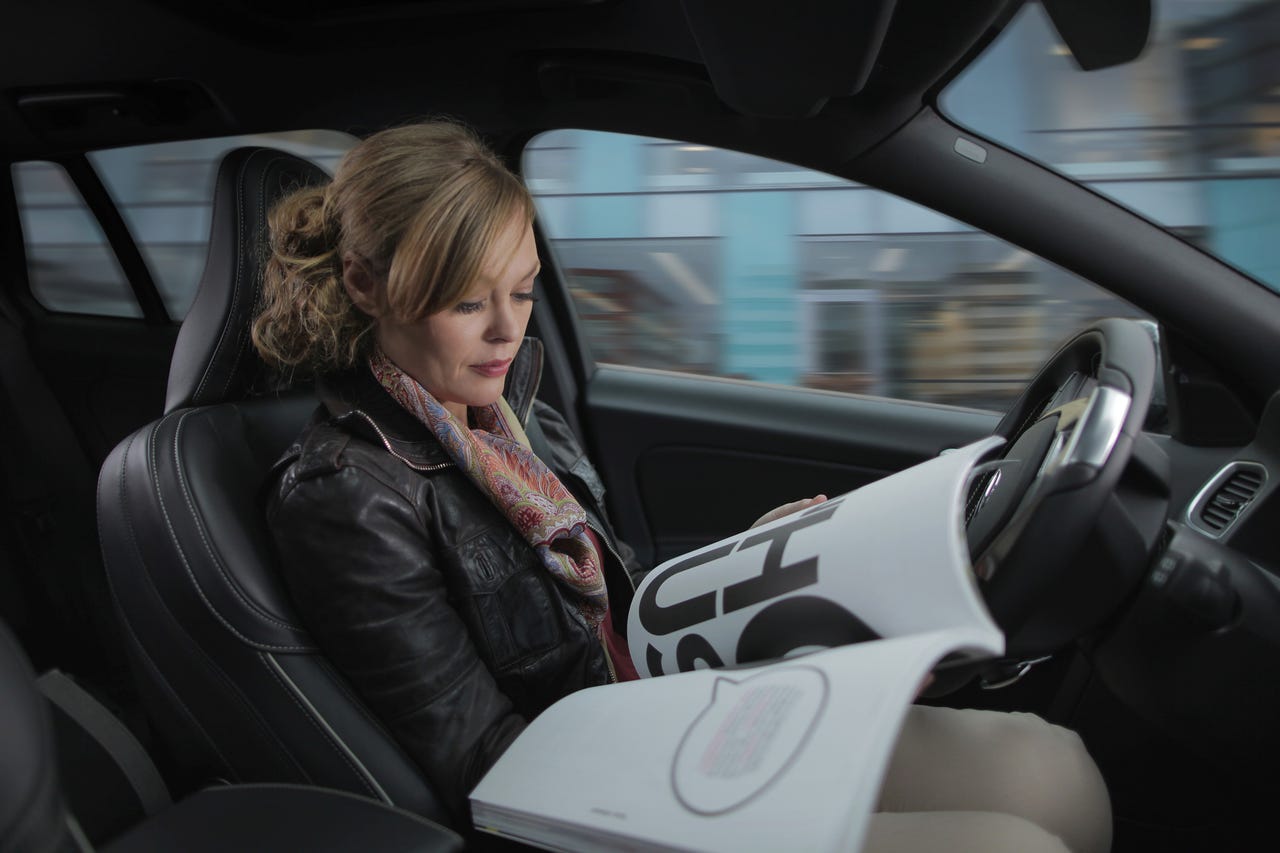Why Volvo believes China is the route to making driverless cars a success


Volvo believe that their driverless cars will free motorists up to relax while on the road
Volvo wants to use China's roads as a test bed for a driverless car experiment which, if successful, the Swedish auto manufacturer claims represents a leap into the future for truly autonomous vehicles by allowing the driver (or is that passenger...) to sit back and relax while on the road.
"Autonomous driving can make a significant contribution to road safety," said Håkan Samuelsson, president and chief executive of Volvo speaking at the announcement of the project in Beijing. "The sooner autonomous driving cars are on the roads, the better".
The self-driving car experiment forms part of Volvo's Drive Me programme. Erik Coelingh, senior technical leader for safety and driver support technologies at Volvo said: "We've all seen the really exciting developments in the technology, but what we're trying to do is to really understand how this can bring an impact to society, as well as too our customers."
Coelingh said: "We felt that the best way to learn was to deploy 100 self-driving cars with ordinary customers behind the steering wheel on public roads in order to learn about how the technology works; learn about how it impacts on safety and how ordinary customers would use a self-driving car."
Volvo is developing autonomous vehicles as part of a commitment that no one will be seriously injured or killed in a new Volvo by the year 2020. It wants to test self-driving vehicles in China because its congested cities make the country one of the most difficult places in the world for people to drive - thus providing the most challenging conditions for an experiment of this kind.
"If you look at the road transportation network in China, it's obvious that it has a huge problem, traffic safety is a very big issue there. People spend huge amounts of time in traffic jams, so when you look at the problems that you see on Chinese roads and the potential that self-driving cars have, it's a perfect match," says Coelingh.
Volvo thinks self-driving cars could make the roads a safer and make driving in congested areas much less stressful, even to such an extent the drivers could sit back and do other tasks like reading, working or watching a film while they're in the car.
"The potential of self-driving cars is beneficial to society and it gives customers the time to do something else behind the steering wheel. It's a very attractive solution and we want to investigate whether we can bring this solution to reality," Coelingh explains.
The experimental Volvos will, for the most part, operate like a normal vehicle, and will be in the hands of ordinary motorists. The major difference is that in the 100 cars the driver will also be able to switch to autonomous mode in congestion and slow moving traffic.
"It's really about research and learning all these aspects with ordinary people," says Coelingh, who says the data generated will be analysed by experts on traffic safety, automotive experts and researchers at local Chinese universities.
"We really want to bring scientific knowledge into this project to make sure we learn the right the thing".
While the experiment is highly important to Volvo, with the company under no illusions about how totally reliable the technology behind a vehicle driving by itself must be, especially if the driver is distracted by something else.
"We're providing technology which allows you do something else behind the steering wheel, which means the technology itself needs to be very, very robust, the car needs to be able to deal with all potential traffic scenarios" says Coelingh.
"If anything fails - and sometimes they do, even if the frequency is low - the car can bring itself to a safe stop. Because if you don't have that, you can't promise customers that they can do something else behind the steering wheel," Coelingh explains, reinforcing how if the test is successful, a previously stressful commute to the office could be use to relax or get started on work early.
While the experiment isn't set to begin until 2017 - Volvo is still working with the Chinese authorities to determine a suitable location for the trial - Coelingh argues that it's important to "open up the discussion" sooner rather than later, because it will serve as an important indicator about the potential future of driverless vehicles.
"This technology we've talked about here, it's very different from technology that's on the market today. We have semi-autonomous features in the car which you can buy in vehicles, but Drive Me is really about providing the driver with the possibility to go completely out of the loop," says Coelingh.
"It's really a leap into the future and as part of this leap we need to learn and that's what we will be doing in China," he said.
READ MORE ON AUTONMOUS VEHICLES